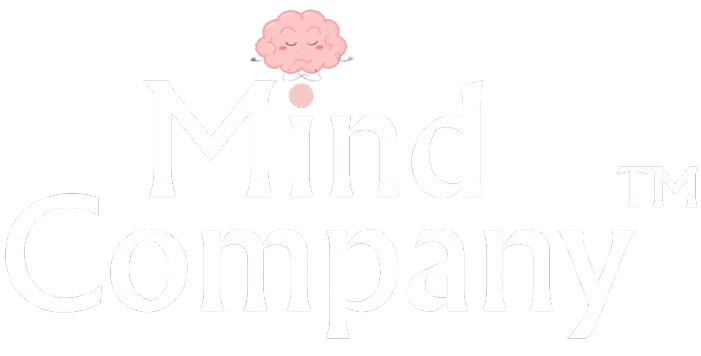Introduction to Counseling Psychology
Counseling psychology is a vital field within the broader psychology discipline, focusing on facilitating personal and interpersonal functioning across a person’s lifespan. It addresses emotional, social, vocational, educational, developmental, and organizational concerns. What sets counseling psychology apart from other branches is its emphasis on wellness, resilience, and helping individuals manage life’s challenges rather than only focusing on the diagnosis and treatment of mental illness.
In today’s world, the importance of mental health has taken center stage, making counseling psychology more relevant than ever. The role of counseling psychologists is to help individuals navigate through stress, trauma, and life’s complexities by providing therapeutic treatments, strategies, and support.

Applications of Counseling Psychology
Counseling psychology is applicable in various sectors of life and for people of all ages. Some of the most common areas of application include:
- Career Counseling: Counseling psychologists assist individuals in career planning, career changes, or finding the right work-life balance. They offer career assessments and help individuals make informed decisions about their professional paths.
- Educational Guidance: From children facing academic challenges to adults pursuing higher education, counseling psychologists provide critical support in navigating academic hurdles, managing school-related stress, and fostering educational growth.
- Relationship and Family Therapy: Whether it’s a couple going through a rough patch or a family facing difficulties in communication, counseling psychologists provide frameworks for healthier interactions, conflict resolution, and emotional healing within relationships.
- Substance Abuse Counseling: Addiction recovery is another area where counseling psychology plays an integral role. Counseling psychologists help individuals struggling with addiction by creating tailored recovery plans that address underlying psychological triggers, offer coping mechanisms, and support sustainable sobriety.
- Mental Health Counseling: For individuals experiencing anxiety, depression, stress, and other mental health issues, counseling psychology provides a structured environment for understanding their struggles and offering therapeutic interventions that promote mental well-being.
Common Disorders Treated Through Counseling Psychology
Counseling psychology covers a wide spectrum of psychological disorders, many of which are treated through various therapeutic modalities. Here are some of the most common disorders that benefit from counseling:
- Anxiety Disorders: These include generalized anxiety disorder (GAD), panic disorders, and phobias. People experiencing excessive worry, nervousness, or fear find significant relief through counseling. Cognitive-behavioral therapy (CBT) and exposure therapy are common approaches used by counseling psychologists to treat anxiety.
- Depression: This mood disorder can severely impact a person’s ability to function in daily life. Psychotherapy is often the first line of treatment, with counseling psychologists helping individuals understand their negative thought patterns and behaviors. Techniques such as CBT, interpersonal therapy (IPT), and mindfulness-based cognitive therapy (MBCT) are frequently employed.
- Post-Traumatic Stress Disorder (PTSD): Counseling psychologists work with individuals who have experienced traumatic events, using treatments like trauma-focused CBT, eye movement desensitization and reprocessing (EMDR), and stress inoculation training (SIT) to reduce symptoms and improve coping mechanisms.
- Obsessive-Compulsive Disorder (OCD): Counseling psychology provides support for individuals with OCD through exposure and response prevention (ERP) therapy and CBT, which help in managing compulsive behaviors and obsessive thoughts.
- Eating Disorders: Disorders like anorexia, bulimia, and binge-eating disorder are treated through a combination of psychotherapy, cognitive restructuring, and often a multidisciplinary team approach involving dietitians and medical professionals.
Counseling Psychology Treatment Approaches
Counseling psychologists utilize a range of treatment modalities, tailored to meet the unique needs of each individual. Here are some of the most widely used therapeutic approaches:
- Cognitive Behavioral Therapy (CBT): CBT is one of the most commonly used treatments in counseling psychology. It involves identifying and changing negative thought patterns and behaviors. The therapist helps individuals recognize how their thoughts influence their feelings and behaviors, providing tools to reshape those thoughts into healthier perspectives.
- Person-Centered Therapy: Developed by Carl Rogers, this approach is based on the belief that individuals possess the capacity for self-healing and personal growth. Counseling psychologists foster a non-judgmental, empathetic environment where clients feel heard and understood, encouraging them to explore their emotions and inner experiences.
- Psychodynamic Therapy: This approach helps individuals explore unconscious patterns of thoughts and behaviors developed from childhood experiences. Counseling psychologists work with clients to understand these deep-seated patterns and how they impact current behavior, fostering long-term emotional healing.
- Mindfulness-Based Interventions: Mindfulness techniques, including mindfulness-based stress reduction (MBSR) and mindfulness-based cognitive therapy (MBCT), are increasingly used in counseling psychology to help individuals stay present and manage stress, anxiety, and depression.
- Dialectical Behavior Therapy (DBT): DBT is particularly useful for individuals dealing with emotional dysregulation and borderline personality disorder. It focuses on teaching coping skills to manage distressing emotions and improve relationships.
- Solution-Focused Brief Therapy (SFBT): As the name suggests, SFBT focuses on finding solutions rather than dwelling on problems. Counseling psychologists using this approach aim to help individuals identify and leverage their strengths to overcome challenges.
The Role of Counseling Psychology in Holistic Well-being
Counseling psychology isn’t just about treating mental illness—it’s about fostering overall well-being. Through counseling, individuals learn resilience, develop healthier coping strategies, improve their relationships, and gain a greater understanding of themselves. Counseling psychologists aim to empower clients to make positive changes in their lives, improve their quality of life, and navigate life’s complexities with a renewed sense of purpose and confidence.
Final Thoughts
As mental health continues to gain recognition as a critical component of overall wellness, counseling psychology’s role in society becomes increasingly important. Whether you are seeking support for a specific mental health issue, guidance in your career, or simply a space to talk through life’s challenges, counseling psychologists offer a safe, supportive environment for growth and healing.
If you or a loved one is considering counseling, know that help is available. Counseling psychologists are trained to provide the guidance and therapeutic interventions needed to navigate life’s difficulties and promote lasting well-being.
By integrating scientifically backed approaches with empathy and understanding, counseling psychology helps individuals unlock their potential, live more fulfilling lives, and achieve a balanced state of mental health.

